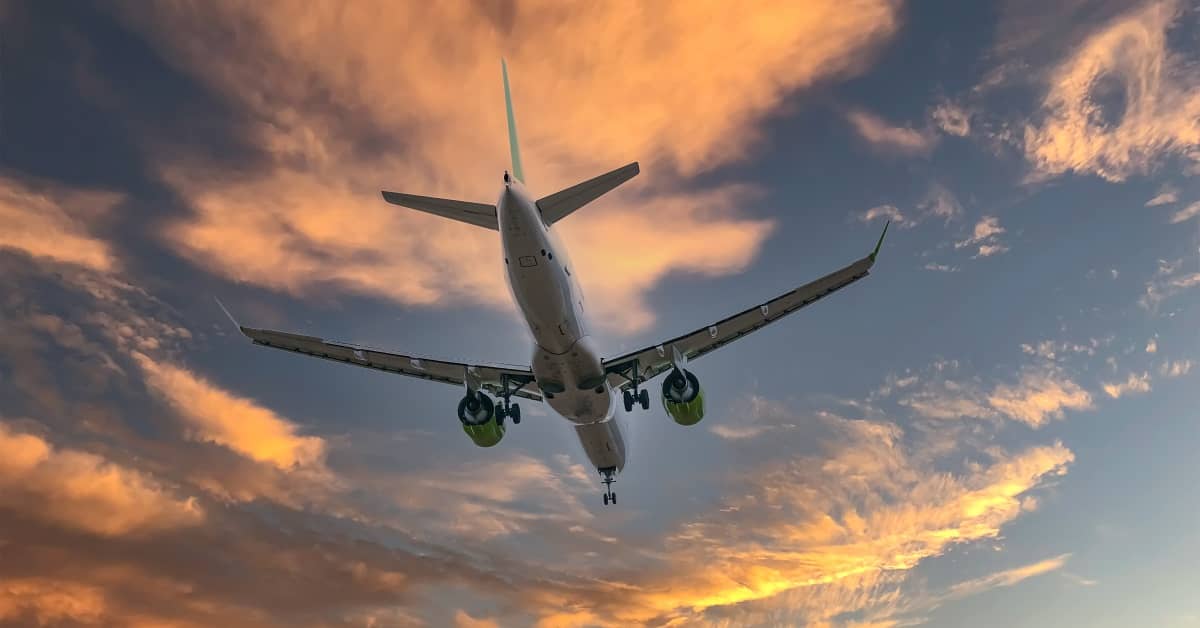
Crashes involving large commercial airplanes are, thankfully, a rare occurrence. A survey of commercial aviation in 2020 found that only one out of every 3.7 million flights ended in a fatal accident.
But, when aviation accidents do occur, the results are disastrous. Last year nearly 300 people were killed worldwide in just five crashes.
Investigation of aviation accidents often reveals a wide range of causes, from human error to mechanical failure and more. Determining the cause of the accident is essential not only for ensuring that such a tragedy never happens again, but for holding those responsible to account for serious injuries and loss of life.
Patrick Daniel is an experienced aviation accident lawyer who is committed to overcoming the complexities of litigation and recovering compensation on behalf of the victims. Contact Patrick Daniel Law today for a free case review.
Though accidents involving commercial airliners are uncommon, each one is closely examined in the hopes of preventing future crashes. As such, a number of factors have been identified as contributing to aviation accidents.
In the majority of cases, aviation accidents are caused by a combination of issues and errors rather than one single problem. Potential causes may include:
It takes two years and 1,500 flight hours to become a commercial pilot. Although the majority of pilots are diligent and competent behind the controls, serious errors still occur. It should come as no surprise, then, that pilot error is the leading cause of aviation accidents.
Some crashes are caused by momentary errors, such as a failure to read the instruments and make the proper adjustments. Meanwhile, other accidents are the result of egregious negligence. Pilots may exceed the flight time limitations imposed by the FAA, leading to fatigue that increases the risk of errors that can lead to accidents. Unbelievably, some pilots even fly planes when they are under the influence of alcohol and drugs.
Establishing that pilot error caused an aviation accident can be a challenging process. Pilots who survive crashes are interviewed by the National Transportation Safety Board (NTSB). If the pilot is killed, however, review of the black box data and documentary evidence will be necessary to determine how the pilot’s actions led to the accident.
Errors are not always isolated to individual pilots. It is also important to investigate the potential role of the airline (also known as the carrier) in contributing to the accident.
Potential forms of negligence on the part of the airline that can lead to aviation accidents include:
Carrier negligence is difficult to prove in the aftermath of an aviation accident. An experienced lawyer can obtain critical evidence on your behalf, such as paper and electronic records, to hold the airline accountable.
Flawed designs and malfunctioning components and systems are another common cause of accidents involving aircraft. Commercial planes are complex machines. The failure of a crucial part during takeoff, flight, or landing can be catastrophic.
Liability for an aviation accident caused by a mechanical failure may be shared by multiple parties. Although the manufacturer is the principal party to investigate, it is important not to overlook the role that the pilot and the carrier may have played.
Pilots should know how to operate the plane safely and what to do in the event of a malfunction. Airlines are responsible for maintaining their fleet of planes. You may have additional claims if the negligence of the pilot, the airline, or both contributed to the accident.
No one can control the weather. However, pilots and passengers must sometimes be prepared to fly in bad conditions.
Commercial airplanes are designed to withstand most forms of inclement weather. So, when aviation accidents happen in bad weather, one or more additional factors are probably involved. Potential examples include:
Adverse weather alone rarely causes aviation accidents. Instead, these crashes are typically caused by a combination of poor conditions, human error, and mechanical failures.
Responsibility may rest with people on the ground as well as in the air. Errors on the part of air traffic controllers, aviation meteorologists, and others can increase the risk of weather-related accidents.
Controlling air traffic is a stressful job. Air traffic controllers have to pay close attention to which planes are taking off and landing, which runways are clear, updates from pilots, and much more.
Air traffic controllers are a lifeline for pilots, relaying important instructions and information at multiple points during the flight. Errors on the part of air traffic controllers can lead to runway crashes and midair collisions. These errors are most likely to occur during shift changes and when flights move through different airspace regions.
Plane crashes are international news. Government agencies and the airlines themselves will leave no stone unturned to find out what happened. However, none of these parties have your interest at heart.
If you were injured or a member of your family tragically died in an aviation accident, it is of the utmost importance to speak to a lawyer as soon as possible. Your attorney will perform a thorough investigation of the crash, identify the parties at fault, and pursue the compensation you and your loved ones deserve.
Strategic, Meticulous, Merciless – that is our philosophy at Patrick Daniel Law, and it has made it possible for us to achieve life-changing results on behalf of our clients. We make it a point to take on the cases many other law firms won’t touch due to their complexity and the resources on the opposing side. Often, this means taking on major corporations (such as airlines) and other powerful entities.
Attorney Patrick Daniel and his team develop innovative strategies for achieving favorable results on behalf of our clients. We know that no two cases are exactly alike, and we provide compassionate support and guidance for those who need help the most.
Please call Patrick Daniel Law at (713) 999-6666 today for a free case review. Aviation accident lawyer Patrick Daniel serves clients throughout Houston, all of Texas, nationwide, and even internationally in select cases.
 Top Truck Accident Lawyer in Pasadena
Top Truck Accident Lawyer in Pasadena Best of The Best Attorneys
Best of The Best Attorneys Best of the Best Houston Chronicle 2021
Best of the Best Houston Chronicle 2021 Best Motorcycle Accident Lawyers in Houston 2021
Best Motorcycle Accident Lawyers in Houston 2021 American Association for Justice Member
American Association for Justice Member The National Trial Lawyers 2016 – (Top 40 under 40)
The National Trial Lawyers 2016 – (Top 40 under 40)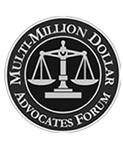 Multi-Million Dollar Advocates Forum 2016 (Top Trial Lawyer)
Multi-Million Dollar Advocates Forum 2016 (Top Trial Lawyer)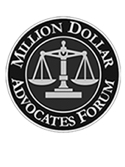 Million Dollar Advocates Forum 2019 (Top Trial Lawyer)
Million Dollar Advocates Forum 2019 (Top Trial Lawyer) America’s Top 100 Attorneys 2020 (High Stake Litigators)
America’s Top 100 Attorneys 2020 (High Stake Litigators)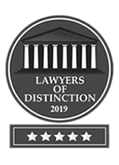 Lawyers of Distinction 2019, 2020 (Recognizing Excellence in Personal Injury)
Lawyers of Distinction 2019, 2020 (Recognizing Excellence in Personal Injury)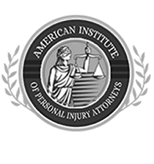 American Institute of Personal Injury Attorneys 2020 (Top 10 Best Attorneys – Client Satisfaction)
American Institute of Personal Injury Attorneys 2020 (Top 10 Best Attorneys – Client Satisfaction) American Institute of Legal Advocates 2020 (Membership)
American Institute of Legal Advocates 2020 (Membership)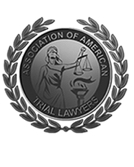 Association of American Trial Lawyers 2018 - Top 100 Award recognizing excellence in personal injury law
Association of American Trial Lawyers 2018 - Top 100 Award recognizing excellence in personal injury law American Institute of Legal Professionals 2020 (Lawyer of the Year)
American Institute of Legal Professionals 2020 (Lawyer of the Year) Lead Counsel Verified Personal Injury 2020
Lead Counsel Verified Personal Injury 2020 The Houston Business Journal 2021
The Houston Business Journal 2021